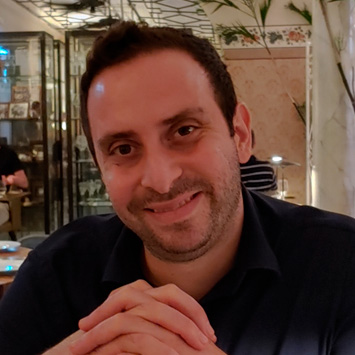
Dr. Daniel Rosenblum
Postdoctoral Fellow
Daniel is a Human Frontier Science Program (HFSP) postdoctoral fellow. Daniel received his B.Sc and Ph.D. from Tel Aviv University, where he developed the first targeted highly efficient genome editing-based Nanomedicine for cancer therapy. This work gained worldwide interest as it pioneered the use of genome editing for cancer therapy and opened new avenues for treating a few of the most aggressive tumors, including Glioblastoma and metastatic ovarian cancer.
In January 2021, Daniel joined the lab as a postdoctoral fellow. Daniel’s work is focused on studying the evolution of stem cell niches in inflammation and the critical cross-talk between stem cells and their niche. Daniel’s work has been awarded the 2021 Kenneth Rainin foundation innovator award.
Publications:
- Daniel Rosenblum, Shruti Naik, New dog, old tricks: Developmental programs resurface in inflammation, Cell Stem Cell, Volume 28, Issue 4, 2021.